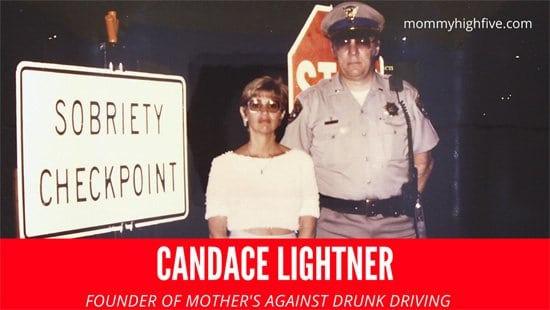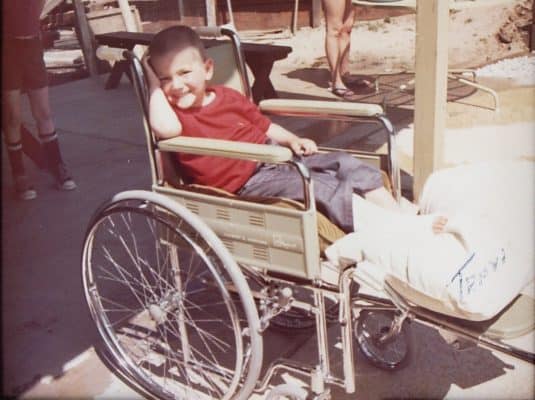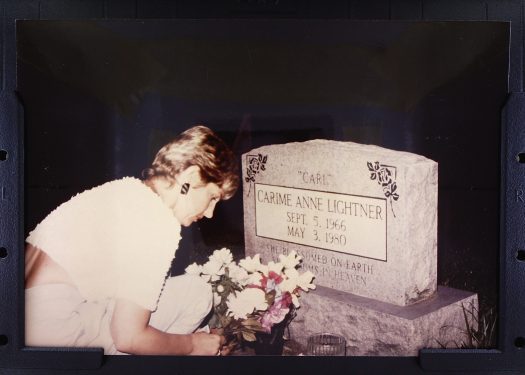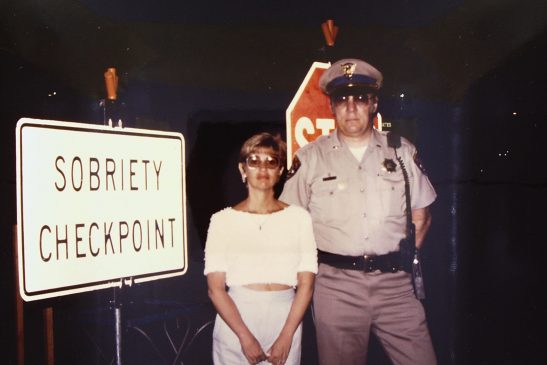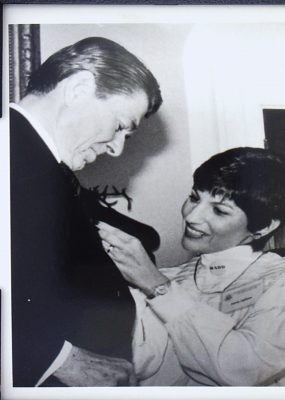You would be hard-pressed to find someone who hasn’t heard of Mothers Against Drunk Driving (MADD). Like most people, I’ve long known about the organization and what they stand for. But I recently met the remarkable woman behind MADD, Candace Lightner, an encounter that left me with tremendous appreciation and respect for everything she went through to start this important organization.
When I initially reached out to Candace requesting an interview, she responded within a few hours. She indicated that she’d be honored and thanked me for thinking of her. I have to admit that my first reaction was shock; Candace is a well-known public figure, while I am a simple, unknown person with no claim to fame. She’d literally had an interview with the prestigious Huffington Post the day before we spoke, so I was very touched she agreed to speak with me as well!
Candace—or Candy, as she goes by—has testified before Congress, was named “one of the most influential American citizens of the twentieth century,” has appeared on numerous talk shows (The Today Show, Good Morning America, 60 Minutes, and more), and was even the subject of two documentaries and a movie. Yet despite all this, she spent nearly 45 minutes chatting with me and even sent me many of her family pictures, along with detailed explanations.
With gratitude to Candy for so graciously sharing her time and thoughts with me, and out of a sincere admiration for the woman and what she has created, I’ve done my best to capture her essence as well as her unforgettable story. A quick Google search yields an abundance of information about her, but let me save you some time and effort by presenting you with the highlights of her career, along with some unique insights from my conversation with this inspiring mom.
The Early Years
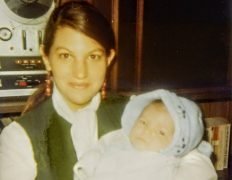
Candy, who has twin daughters, Serena and Cari, and one son, Travis, really enjoyed the early years of her children’s lives. She particularly liked taking them on outings to the beach, stopping to smell flowers, and watching the ducks at the park. When she reflected about this stage of her life, she said, “Today, when I see people walking with their children, they are all on cell phones, and I often wonder if their children ever learn what the ducks say.”
As the children got older, Candy enrolled them in many sports, including softball, volleyball, and basketball, and she thoroughly enjoyed watching their games. She told me, “I am a firm believer in involving your children in as many outside activities as possible.” She even helped start an after school program for latchkey kids, believing that children who played sports seemed to be more confident and less likely to get into trouble.
As a mother, Candy strove to teach the principles of service and tolerance. She learned these values herself as she traveled all over the world with her military family, meeting many different kinds of people.
Candy says her children were “never raised in a racist environment,” largely because they are Arab Americans. Instead, she emphasized to them the importance of “kindness, helping other people, treating people with respect, a strong work ethic, and respecting authority.”
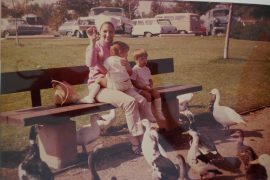
Although Candy’s daughters were identical twins, they had very different personalities. Cari was a “very eager student,” while Serena “couldn’t have cared less about school.” This caused some difficulty when they tried to trick their teachers on April Fool’s Day and switched places!
Even though their friends reminded Serena to raise her hand like Cari and reminded Cari to lie on her desk like Serena, their mismatched behavior gave them away. Laughing, Candy said, “This went on for a few years until I got a note from their teachers telling them not to do that ever again.”
As Cari and Serena entered their teen years, conflict sometimes came between them. Candace worried that they would lose their close bond, but those fears disappeared after she overheard them talking on their bunk beds one night. They started off screaming at each other, but within minutes the tone changed dramatically, and the girls were excitedly telling each other stories. It was then that Candy realized they would be okay.
Family Tragedies
When Candy’s son Travis was four years old, an impaired driver ran over him, resulting in broken bones, a coma, and permanent brain damage. Candy wrote about the experience on her website: “I listened as the doctors told me he probably would not survive the surgery. I just told them to fix whatever was wrong, but they told me they didn’t know what to do first.” When Travis regained consciousness after six hours of surgery, he wasn’t immediately able to speak.
One of Candy’s most cherished memories came a little later, when Travis finally said “Mommy” and blew kisses. “It was such an emotional, positive day for us in the midst of so much tragedy,” she told me.
Candy and I spent some time talking about Travis and how his brain injury continues to impact his life today. She explained that his injuries were permanent and affected his fine motor control as well as his auditory memory. But happily, he now lives nearby, has a family of his own, and works in the grocery business.
Just a few years after Travis’s accident, the Lightner family’s lives changed forever. As sweet 13-year-old Cari was walking to a church carnival with a friend, a car swerved and hit her from behind, throwing her 125 feet. Tragically, Cari died shortly after the incident.
Candy laying flowers on her daughter Cari’s grave
The driver, Clarence William Busch, never stopped after hitting Cari. Authorities later learned he had been driving drunk. What infuriated Candy was that Busch was a repeat offender; he had been arrested for drunk driving several times in the past and was actually out on bail from an incident a few days earlier.
After pleading no contest to vehicular manslaughter, Busch was sentenced to two years of incarceration but retained his driver’s license. This did not feel like justice to Candy.
MADD
Upon discovering that 250,000 people had been killed and another 660,000 injured in alcohol-related crashes during the previous 10 years, Candy felt compelled to take action. What I hadn’t realized until this interview is that she started MADD in her garage four days after Cari died, the day after the funeral. She quit her full-time job in real estate and put her savings into the cause. Her objective was straight-forward: implement stricter consequences for drunk drivers.
Candy at a sobriety checkpoint with the California Highway Patrol
Candy’s efforts through MADD saved an estimated 400,000 to 600,000 lives and reshaped the United States’s attitude toward drunk driving. Despite its small beginnings, the organization grew to include 400 chapters and more than two million members within its first three years.
Out of necessity, Candy learned to manage employees and volunteers as well as lobby lawmakers to change legislation. Her activism efforts led to the passage of more than 500 bills, including the Minimum Drinking Age Act, which raised the drinking age to 21.
I was awestruck that Candy hadn’t been trained for this type of work and had no experience with social reform. (She even told People magazine that she hadn’t been registered to vote prior to MADD.)
She just jumped right in when she saw the need and learned as she went. She visited the California governor’s office every day until they created a state commission on drunk driving, to which she was later appointed. President Ronald Reagan later appointed her to the national commission as well.
Candy pinning a MADD button on President Ronald Reagan
Candy clearly had a knack for activism, because she was recognized for her leadership skills by the Franklin Covey Leadership Center, the Center for Creative Leadership, and the Columbia Business School’s Institute for Personal Leadership.
Awards and Honors
Are you starting to see why I felt more than a little intimidated and honored to talk to Candy? After reading all this, you see how it’s an understatement to say she is exceptionally accomplished. In fact, here is a list of only some of the awards and honors she has received throughout her career:
- Honored as one of the “Seven Who Succeeded” by Time Magazine
- Picked as one of “America’s New Leadership Class” by Esquire
- Listed as one of the “Top 100 Women in America” by Ladies’ Home Journal
- Chosen as one of “The Original Thinkers of the 80s” by Life Magazine
- Received the Jefferson Award for Public Service
- Received the President’s Volunteer Action Award
- Received the YWCA Woman of the Year Award
- Received the Patricia Neal Courage Award from the Women’s International Center
- Received the President’s Volunteer Action Award
- Received the Film Advisory Board Award for Excellence
- Received the Women’s Center Annual Leadership Award
- Received the Frank Carrington Champion of Civil Justice award in recognition of her exemplary service to victims of crime
- Was the first woman to be recognized as one of the “Five Outstanding Californians” by the California Jaycees
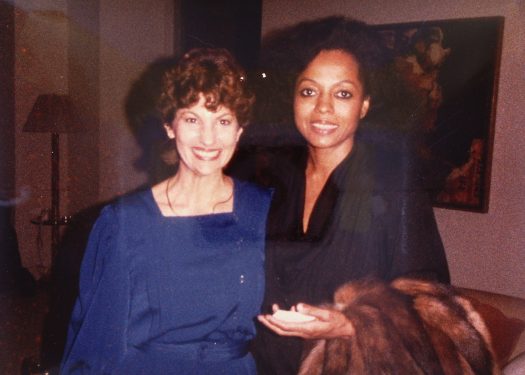
When I talked to Candy, I was curious about the highlight of her career and was surprised by her answer. “The thing that I’m actually most proud of,” she said, “is that I have been an example to other people to start movements.” She mentioned that she has heard from others who were inspired by her efforts and has even read articles about people saying they wanted to do what she did. Candy really has left a legacy inspiring other people to create change.
More Recent Work
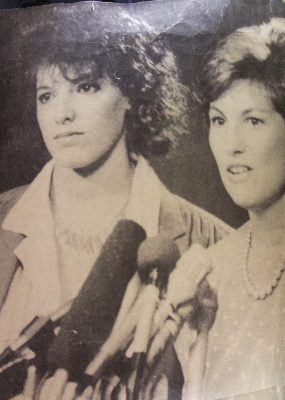
In 1985, Candy decided to leave MADD in order to use her talents and influence in other settings. She founded We Save Lives in 2013, through which she continues working to reduce preventable car crashes caused by any form of distracted driving. In our email correspondence, I couldn’t help but notice the not-so-subtle reminder under her signature: “Sent from my iPhone, #BUT NOT WHILE DRIVING.”
These days, Candy uses her political acumen to help pass bills aimed at promoting pedestrian safety and minimizing distracted driving. She is also a consultant for many organizations and individuals.
A highly sought after international public speaker, she has addressed many different groups, including the American Lawyers Association, the American Academy of Judicial Education, the Association for the Care of Children’s Health, and the Royal Society for the Prevention of Accidents.
The Impact On Her Family
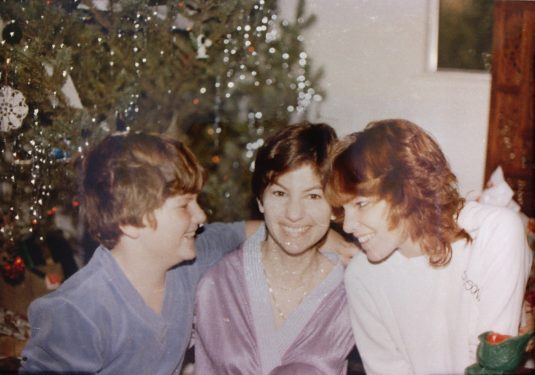
Candy divorced when her kids were young, so she was a single mother. Then she became an activist and began leaving for three weeks at a time to lobby and advocate.
Though she tried to come home for important events, she admitted, “I didn’t balance my children with my activism, which I’m sure they’d tell you. Because to be a successful activist, you really have to dedicate your life to your cause. And I made that choice in order to create the change I did in the short amount of time that I did.”
Serena was a teenager and didn’t seem too affected by her mother’s absence. The younger Travis, on the other hand, struggled to cope with the absence of his father, the loss of his sister, his injuries, and his mother’s busy schedule. In Candy’s words, “He’ll tell you he was raised by babysitters.” She then added that although she unconsciously put her activism before her family, “They’ve come out great in spite of me and definitely not because of me.”
As Candy reflected on her past choices as a mother, she told me, “If I had to do it all over again, I wouldn’t have started MADD, and my children would have come first.” She further explained that she regrets not making their education the focus of her life.
Still, she is delighted to watch Travis and his wife, Sheila, put their own children first. The couple, amid pursuits of higher education and work opportunities, coordinates their schedules so that they’re home when the kids are home. Candy loves this.
Family Life Today
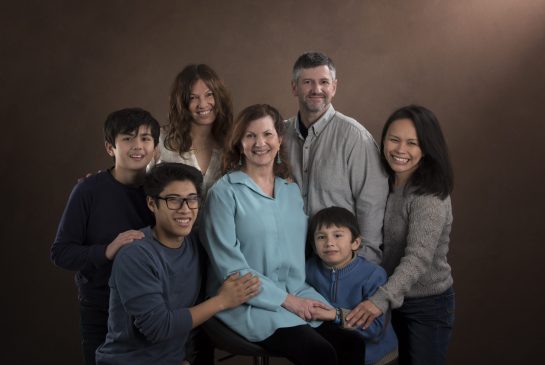
Right off the bat, Candy asked me if I realized she was a grandmother with no more young children to raise. I told her that I did and that I was anxious to get her perspective on families after everything she has been through.
Much has changed for her family over the years, but Candy seems to really enjoy her relationships with her two surviving children and five grandchildren. The three youngest grandkids, who are in their twenties and teens, live close by. The oldest two live in Texas, however, so she sees them less frequently.
When we spoke, Candy had just gone to see the movie Black Widow with her grandsons. She told me she appreciates how tech-savvy they are and how willing they are to help her. When they visit her they always ask, “Candy, is there anything we can help you with?” I couldn’t help but notice how excited she got talking about her family; they clearly mean a lot to her!
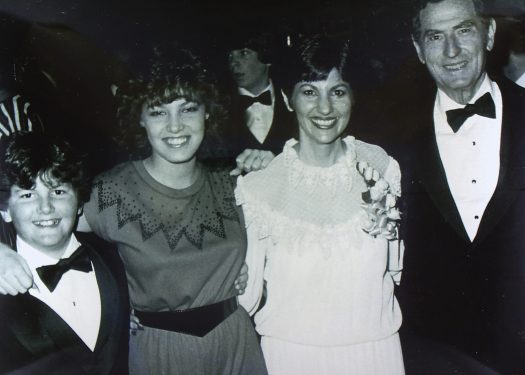
As a pet owner and lover myself, I understand that a description of Candy’s family wouldn’t be complete without mentioning her cats. Pets have always been a part of the Lightner household, but when Candy moved to her current apartment in Arlington, Virginia, she re-homed her cat thinking he would struggle with apartment living. But it didn’t take long for her to want another furry companion, so she got two sister cats that drive her crazy! “They are into and out of everything!” she says.
Advice for Others
One of my most pressing questions for Candy was this: What advice does she have for others who see something they would like to change? This was clearly a question she is accustomed to answering, as she gets contacted at least once a week by someone who has experienced a tragedy or an injustice and wants to start their own movement.
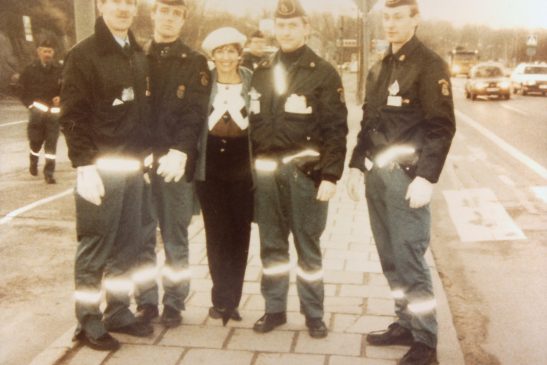
As a result of these frequent requests for help, Candy is currently developing a master class on activism with the Mentora Institute for Columbia University, an organization committed to helping people find success in life and leadership. Although she has been over this countless times with countless people, Candy was kind enough to share some of her thoughts with me.
First of all, she suggests that you try to find an existing non-profit or a group with which to align yourself, because starting your own organization is difficult, to say the least. In fact, Candy told me, “I wouldn’t start one today because the climate is different” than it was 40 years ago. Today it’s much easier to find a group already doing something similar to what you want to do, so you can integrate your ideas with their ideas to do the most good.
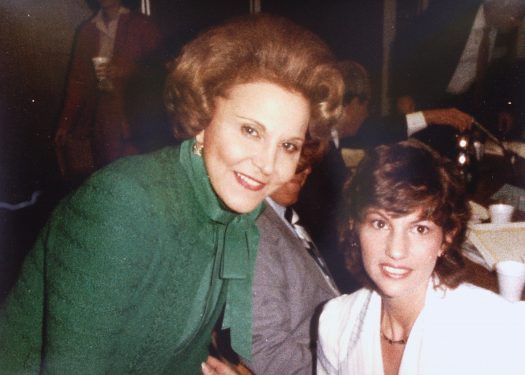
Next, Candy encourages anyone who has suffered a tragedy to give themselves time to grieve—at least six months to a year—before starting a movement like hers. Although grieving is a lifetime process, she wishes someone would have told her to take some time instead of starting MADD so soon after her daughter’s death. As she put it, “MADD put a halt on my grieving.”
Finally, Candy admires people who move on after they reach their goal of changing legislation. While she has made activism her life, she cautions against centering your life around a tragedy. It can be easy to be consumed with anger, but Candy sagely encourages others to “do something positive in their child’s memory,” such as starting a scholarship fund. These things will attach a positive, lasting legacy to their child’s life.
Turning the Focus to Me
The thing that moved me most about Candy Lightner is this: She is genuinely interested in other people. There was so much evidence to support this throughout the course of our chat, as she told me about all sorts of people she has helped through the years.
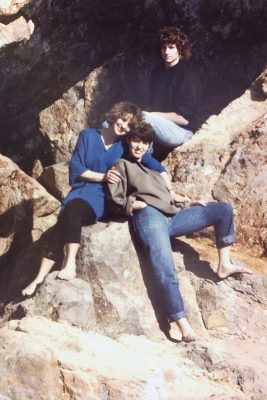
In addition to these stories, I found myself surprised by the way she managed to turn the focus of the conversation to me and my family. She wanted to know about where I lived (near Park City, Utah) and told me about a friend who had described Utah’s beauty to her. She seemed interested in the outdoor activities I enjoy doing here. I appreciated her compassion and interest in my life!
Something about the kind way Candy looked at me made me feel comfortable confiding that I, too, have a child with special needs. When she mentioned she enjoys knitting, I explained how we’re working on developing my daughter’s fine motor skills through finger crocheting.
Candy wanted to know all about my daughter and gently asked me to tell her more. I briefly went over her complicated medical history and explained that while she’s doing great, she still struggles with physical activity.
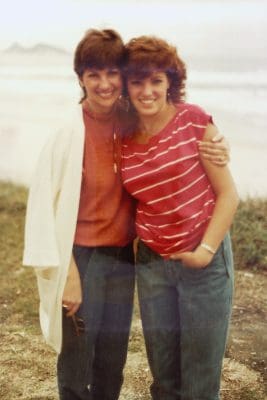
Candy and I connected on this topic, as her son, Travis, also has fine motor control issues as a result of his brain injury. He worked with therapists for years, so she found the idea of using knitting or crocheting as a way to strengthen hand muscles very interesting.
She then proceeded to present me with two practical, helpful recommendations. First, a Looper Loom! If you’re crafty, you’ve probably seen these before. In Candy’s words, “It’s a flat thing with spikes to wrap the yarn around.”
Second, Candy suggested I check out Sue Thomas FBI, a TV series presenting the true story of a deaf woman who became an FBI agent. Apparently the FBI valued the unique skills of lip reading and sign language Sue developed because of her disability. I’m definitely going to follow up on this suggestion, because I love stories about people who work with their disabilities in a positive way!
When I finally looked at the clock, I knew I needed to let Candy get on with her day, so I tried to wrap things up. But before I said goodbye, she stopped me and said, “Jessica, do me a favor and just from time to time let me know how you’re doing with your daughter.” I feel like this comment speaks volumes about the type of woman Candy Lightner is!
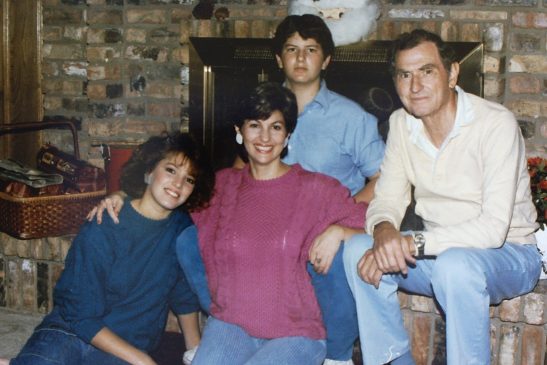
Can’t-Do-Without Products
As my regular readers know, an Inspiring Moms feature would not be complete without this section! I think it’s safe to say that we all love hearing about the products these amazing women recommend.
Without hesitation, Candy named the number one product she can’t do without: yarn. An avid knitter, she is a self-proclaimed yarn addict. As she explained, “I would have walked up in 100-degree heat yesterday to pick up yarn, but a friend of mine came and took me. But, I mean, I would have done it, you know, just to get some more yarn.”
While Candy prefers acrylic yarn, she’ll use just about anything except wool, which she’s allergic to. She knits Christmas gifts for her family but also knits washcloths, blankets, and Afghans for the homeless, orphans, and foster children. Candy even roped her girlfriend into knitting with her, and the friends do it together every Sunday.
This leads to the other thing Candy can’t do without: a TV. “I can’t knit without a TV,” she said, “and I can’t watch TV without knitting.”
To Learn More
I’m sure that after reading about Candy Lightner, you’re wondering where you can learn more about her and follow her ongoing efforts to make the world a safer place. I’d start by checking her out on social media, where she posts all kinds of resources, including ideas for families grappling with an injustice or tragedy. You can also check out the book she co-authored, Giving Sorrow Words: How to Cope with Grief and Get On with Your Life.
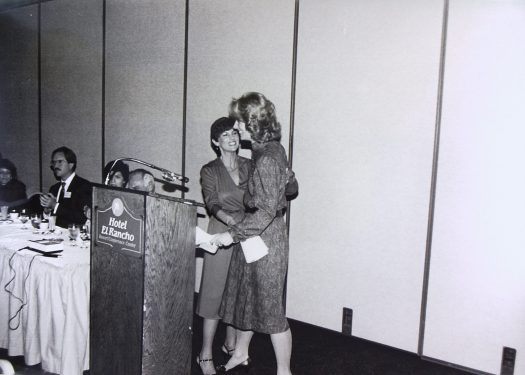
If, like Candy, you like watching TV, you may enjoy the movie about her called Mothers Against Drunk Driving: The Candy Lightner Story or the documentaries On Smoking, Drinking, and Drugging in the 20th Century: In Pursuit of Happiness and Seeds of Resiliency.
You can also visit Candy’s websites, candacelightner.com and wesavelives.org, to learn more about what she’s up to now. Trust me; you’ll be glad you did!
